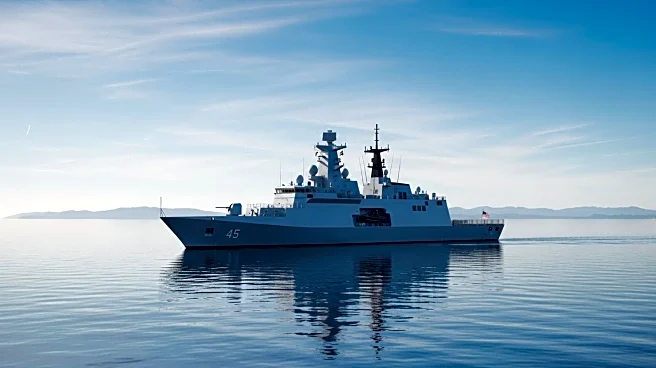What's Happening?
Spain has dispatched vessels to assist the Global Sumud Flotilla, which aims to reach Gaza and break Israel's naval blockade. Spanish President Pedro Sánchez stated that the vessels are prepared to perform rescue operations and emphasized the need for compliance with international law. The flotilla, consisting of two sailing boats, Electra and Oxygen, departed from Syros island in Greece. Sánchez's actions reflect Spain's commitment to ensuring safe navigation in the Mediterranean and supporting humanitarian efforts.
Why It's Important?
Spain's involvement in the Global Sumud Flotilla underscores the country's stance on humanitarian issues and international law. This move could influence other nations to take similar actions, potentially escalating tensions in the region. The flotilla's mission challenges Israel's blockade, raising questions about the legality and humanitarian impact of such measures. Spain's actions may also affect its diplomatic relations with Israel and other countries involved in the Middle East conflict.
What's Next?
The deployment of Spanish vessels may lead to increased scrutiny of Israel's naval blockade and its implications for international law. Other countries might join Spain in supporting the flotilla, potentially leading to a broader international effort to address the situation in Gaza. The flotilla's progress and any incidents that occur could prompt discussions at international forums, such as the United Nations, regarding humanitarian access and maritime rights.
Beyond the Headlines
Spain's actions highlight the ethical considerations of using naval power to support humanitarian missions. The situation raises questions about the balance between national sovereignty and international humanitarian obligations. Long-term, this could influence global maritime policies and the role of international law in conflict resolution.










